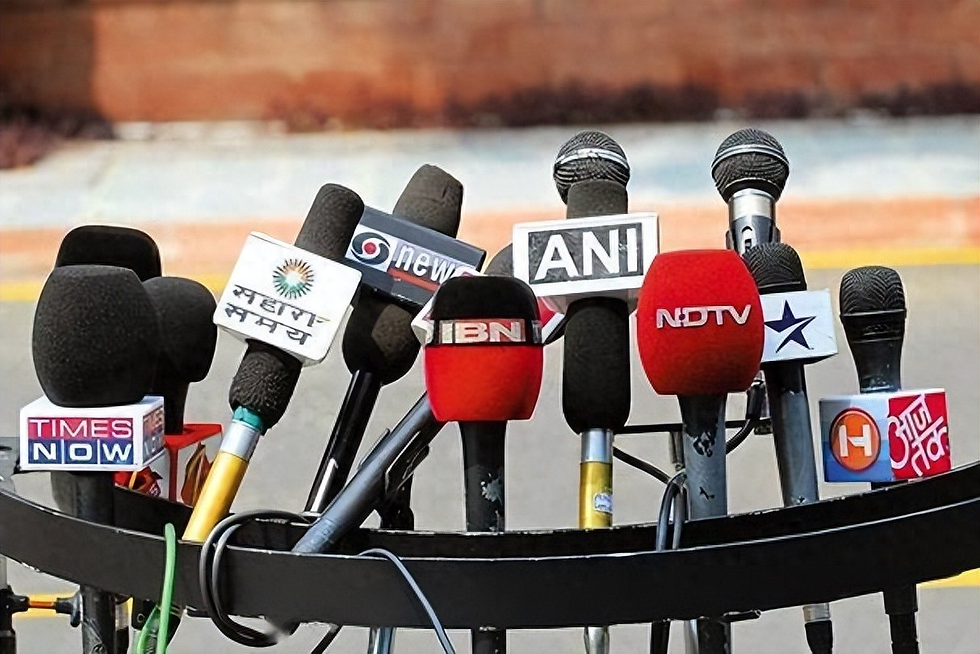BRICS has decided to temporarily halt expansion and focus on integrating new members.
- CosDream News

- Jul 3, 2024
- 3 min read
In the complex chessboard of international politics, every move of the BRICS countries as emerging powers is closely watched globally.
Recently, Russian Foreign Minister Lavrov's speech in Minsk once again shone the spotlight on this developing alliance.
He explicitly stated that the BRICS countries have collectively decided to suspend the admission of new members and instead focus on integrating the new members who joined last year.
This move signifies that after rapidly expanding to "BRICS Ten," the BRICS countries have chosen a brief period of consolidation to ensure new members can deeply integrate and enhance cooperation efficiency.
Since the beginning of this year, countries such as Saudi Arabia, Egypt, the UAE, Iran, and Ethiopia have officially joined the ranks of BRICS countries.
This step not only significantly enhances the BRICS countries' strategic influence globally but also achieves a qualitative leap in terms of population and economic scale.
It is estimated that the total population of BRICS countries after expansion approaches half of the global population, and their economic aggregate surpasses that of the traditional Western strongholds, the G7.
However, just as an army needs rigorous training and integration after recruiting new soldiers, the BRICS countries also require a similar "digestion period."
Lavrov emphasized that the suspension of expansion is to ensure that new members can smoothly integrate into the mechanisms and culture of BRICS.
This decision demonstrates the BRICS countries' high regard for internal cohesion and operational efficiency, avoiding the potential pitfalls of blind expansion.
The entry of new members has brought a completely new geopolitical stage for the BRICS countries.
Countries like Saudi Arabia and the UAE from the Middle East, Egypt from North Africa, Ethiopia from East Africa, and Iran from the Middle East have not only expanded the geographical boundaries of BRICS but also brought rich resources, market potential, and geopolitical strategic value, adding new dimensions to the cooperation framework of BRICS.
In particular, the inclusion of oil-producing countries from the Middle East significantly enhances BRICS' influence in the energy sector, enabling them to play a crucial role in global energy security dialogues.
At the same time, the entry of new members also provides economic backing and strategic support for BRICS countries in the face of Western sanctions.
Despite the slowing pace of expansion, the concept of "BRICS Plus" has deeply resonated.
Russia's hosting of the "BRICS Plus" International Party Forum, as well as strong desires from other countries like Malaysia and Zimbabwe to join BRICS, demonstrates the attractiveness of the BRICS model to developing countries worldwide.
The condition proposed by Russian Deputy Foreign Minister Ryabkov of "non-participation in illegal unilateral sanctions" as a significant requirement for new members further clarifies the political bottom line of BRICS cooperation, emphasizing the common stance of BRICS countries in upholding multilateralism and opposing hegemonism.
The decision of BRICS countries to pause expansion reflects a dual result of internal integration and external strategic considerations.
During this period, BRICS countries will consolidate their achievements, deepen internal cooperation, and at the same time, establish a mature and stable image in the international community.
Future BRICS countries not only need to form a united front economically but also need to build close partnerships in politics, security, and other fields to become an indispensable stabilizing force in the complex and volatile international environment.
The rise of BRICS countries symbolizes not just the union of several nations but also an adjustment in the global power structure.
With an economic aggregate surpassing the G7 and massive accumulated investment wealth, BRICS provides new possibilities for the status of developing countries in the global economic landscape.
This change not only challenges the long-standing world order dominated by the West but also opens up new paths for multipolar development.
The viewpoint of Zimbabwe's Defense Minister Oppah Muchinguri reflects that in the eyes of many developing countries, BRICS countries are an important force challenging Western unilateralism and promoting reform of the global governance system.
The decision of BRICS countries to suspend expansion is not only a reflection of their internal integration and external strategic considerations but also a manifestation of their mature and stable development.
This period is not only a crucial moment for BRICS countries to consolidate their achievements and deepen internal cooperation but also an opportunity to establish a mature and stable image in the international community.
Future BRICS countries need to build close partnerships in various fields such as politics and security on the basis of forming a united front economically, so as to play an indispensable stabilizing role in the complex and ever-changing international environment.










Comments